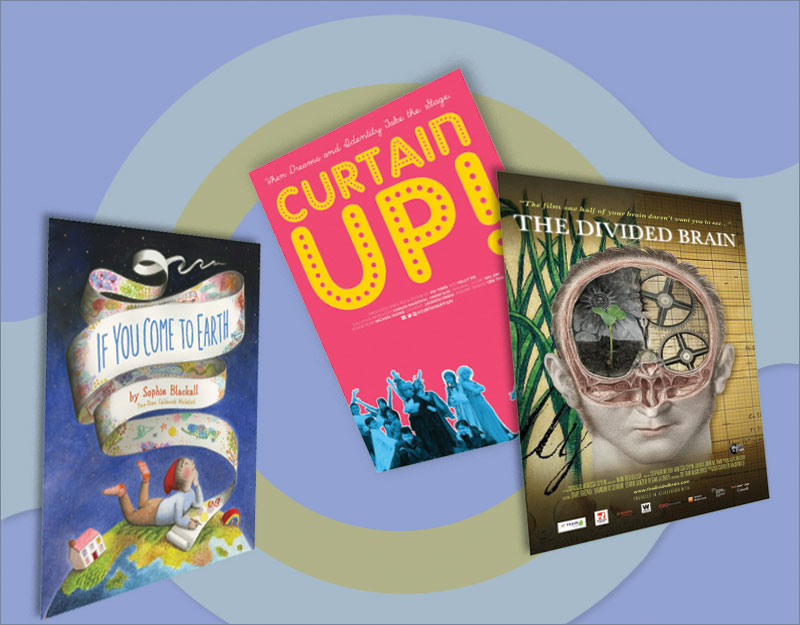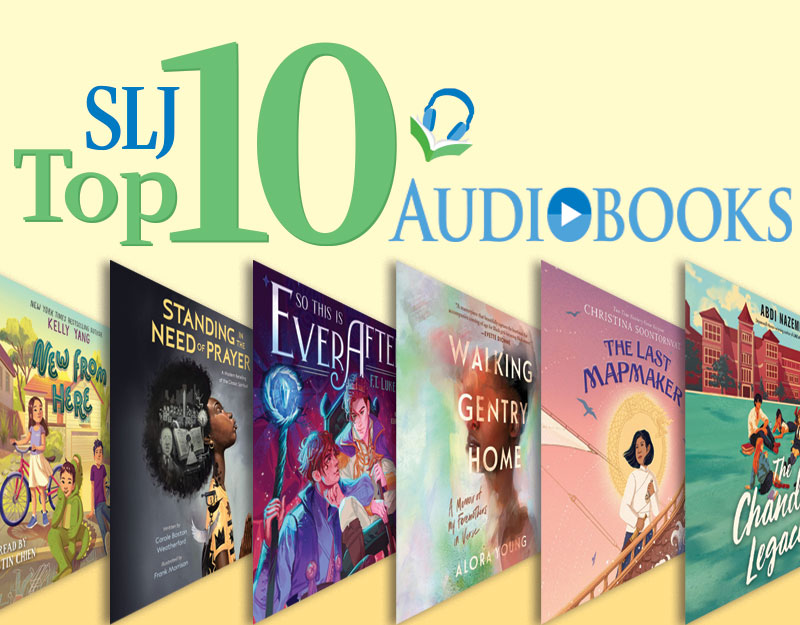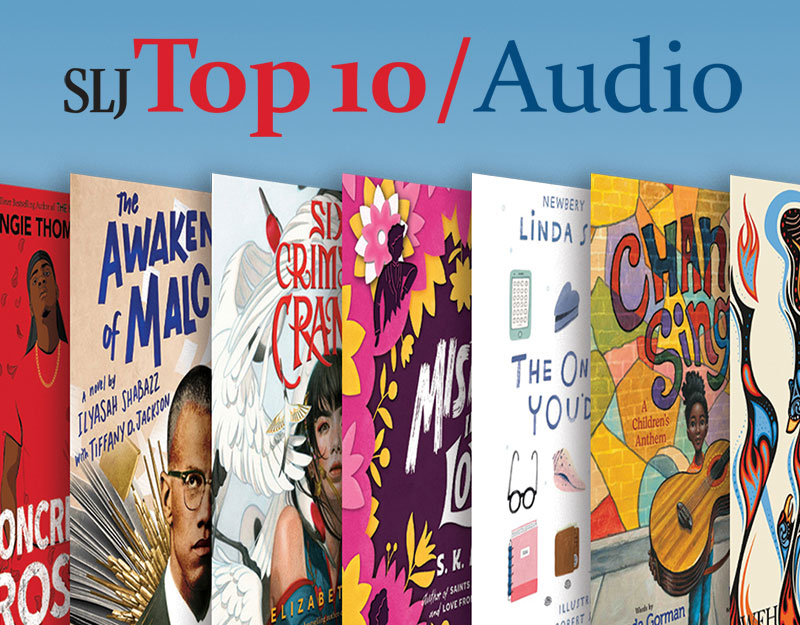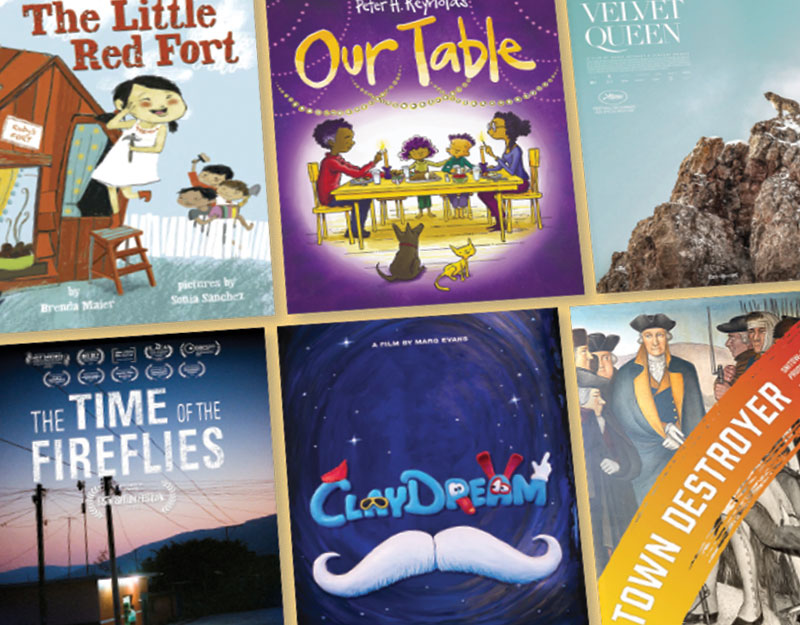Review of the Day: Big Red Lollipop by Rukhsana Khan
 Big Red Lollipop
Big Red Lollipop
By Rukhsana Khan
Illustrated by Sophie Blackall
Viking (a division of Penguin)
$16.99
ISBN: 978-0-670-06287-4
Ages 4-8
On shelves now.
Yeah, I have a little sister. Have since I was six. And like most older siblings I had the usual older sis/younger sis relationship with her you might imagine. We older siblings get a lot of innate perks, being the first and all, but when you’re a kid you have a tendency to only notice the problems. Little sisters want to go everywhere with their older sibs. That’s just the nature of the game. What author Rukhsana Khan has done with her newest picture book Big Red Lollipop is tell a new story of little sis/big sis woes with a twist that’ll knock young readers’ socks off. It doesn’t matter if a kid is an older sibling, younger sibling, or only child. This book packs a wallop, in part because of the art of Sophie Blackall, and in part because Khan has given us one of the best stories about forgiveness I’ve read in a very long time.
What a nightmare! When Rubina ran home one day to tell her mother than she was invited to a birthday party, she couldn’t believe it when her Ami told her she had to make sure her little sister Sana was invited too. And not only does her little sister pitch a fit when she doesn’t win all the games at that party, but she eats all the candy in her goody bag right away. Rubina’s a more patient type. She saves her own big red lollipop on the top shelf of the fridge so that she’ll be able to eat it first thing the next day. Imagine her horror then when Sana eats HER lollipop too! And her mother doesn’t even take Rubina’s side! A couple years later, Sana gets invited to a birthday party of her own and is shocked when her mother says she has to bring HER younger sister Maryam along. Rubina could say nothing and let Sana get what’s coming to her, but instead she tells their Ami to let Sana go by herself. Ami agrees. After the party, Sana gives Rubina the big green lollipop she got as a gift at the party. "After that we’re friends."
ADVERTISEMENT
ADVERTISEMENT
 Part of what I love about this book is how it manages to come up with a new universal truth; No matter what country, culture, religion, or background you are from, there is one thing on which we can all agree: little sisters are annoying. Rubina may be Pakistani-Canadian, but this story is a perfect melding of culture clash and something that could happen to anyone, regardless of where they’re from. In this particular case Rubina’s Ami insists on Sana accompanying her older sister to a birthday party, but there are plenty of parents here in America from other races and religions that would insist on the very same thing. And the outcome, let’s face it, might be exactly the same as what you find here. The difference is only in the details.
Part of what I love about this book is how it manages to come up with a new universal truth; No matter what country, culture, religion, or background you are from, there is one thing on which we can all agree: little sisters are annoying. Rubina may be Pakistani-Canadian, but this story is a perfect melding of culture clash and something that could happen to anyone, regardless of where they’re from. In this particular case Rubina’s Ami insists on Sana accompanying her older sister to a birthday party, but there are plenty of parents here in America from other races and religions that would insist on the very same thing. And the outcome, let’s face it, might be exactly the same as what you find here. The difference is only in the details.
On a more basic level, I was also keen on how Khan constructed the story. She could have begun by wasting time showing Rubina receiving her invitation at school. Instead, the first line of the book is, "I’m so excited I run all the way home from school." This allows Rubina to tell both her mother and the reader the news about her birthday party invitation at the same time. I like how information is conveyed here. I also like how well Khan is able to show that time has passed without saying something as rote as "three years later". Rubina gives a short "I don’t get any invitations for a really long time", and we later see the girls older thanks to this line and thanks to Blackall’s pictures. It’s a wonderful melding of image and text telling a single tale.
Artist Sophie Blackall has written her own fair share of picture books in her time. In a way, she cut her teeth on inter-girl arguments and friendships when she illustrated the Ivy & Bean series for Annie Barrows. Here, she places most of her characters against a white background, allowing their expressions to really pop off the page. You have the distinct impression that Blackall knows from whence she illustrates too. There’s something about little Sana crying about not being able to go to the birthday party with Rubina that looks calculated. I think it’s the fact that her left eye is closed, while the right one looks sneakily over at her older sis. And look at that last picture of the two girls with their arms around one another. That, combined with the sentence, "After that we’re friends" just hits me where it hurts. Sana is looking at the viewer. Rubina is looking over at the little sister that has unexpectedly made amends after all those years.
 The attention to detail within the pages is also remarkable. I love the Formica dining room table where the girls color and do their homework while Ami types on her laptop. It grounds the book in the present, which I really appreciate. I love the sheer variety of colors and patterns on the clothes of the characters and the fancy borders around cutaway images. Personally, I’m convinced that the first page of the book is an unconscious homage to the Sophie Blackall cover of Newbery winner Rebecca Stead’s book When You Reach Me. Something about the maplike quality of it.
The attention to detail within the pages is also remarkable. I love the Formica dining room table where the girls color and do their homework while Ami types on her laptop. It grounds the book in the present, which I really appreciate. I love the sheer variety of colors and patterns on the clothes of the characters and the fancy borders around cutaway images. Personally, I’m convinced that the first page of the book is an unconscious homage to the Sophie Blackall cover of Newbery winner Rebecca Stead’s book When You Reach Me. Something about the maplike quality of it.
When it comes down to it, this is a book about grace. Self-sacrifice is never felt more keenly by a child than when a story speaks on their level about something they understand. I could read a kid parable after parable about forgiveness and not make so much as a dent in their scaly little brains. But tell them a story about an older sister being wronged by her younger sibling and then going out of her way, in spite of her anger, to keep that same sister from experiencing a similar fate… THAT hits home. Hear that? That is the sound of thousands of tiny jaws plummeting downwards after getting to the end of this tale. It’s their little minds trying to grasp the concept of not taking an eye for an eye or, in this case, a lollipop for a lollipop. And I won’t blame you a jot if you tear up just a little bit at the end of this book.
I was going to sum all this up by saying that kids like comeuppance stories, but who am I kidding? Adults, for crying out loud, like comeuppance stories. They like to see the "villain" of a piece get a taste of their own medicine. There are hundreds of stories out there like that. Far rarer is the story that believably shows one character letting another one off the hook for no reason other than the fact that it’s the right thing to do. And remarkably, Khan does it without plunging into some kind of wild didacticism. This story is different. Show don’t tell, they say. Khan shows. The results are telling. One of my favorite picture books of the year.
On shelves now.
- Sacramento Book Review (found in other publications as well)
- Read the reviews here from Publishers Weekly (starred), Booklist (starred), School Library Journal, and Kirkus.
Interviews with Rukhsana Khan: Papertigers
Misc:
- The full real-life story behind the lollipop incident is recounted by Ms. Khan here. I now realize that Blackall included details in her illustrations that were taken from this true story. Like the fact that the little sister (who was actually Rukhsana) hid in the hall closet when her sister discovered the destroyed lolly.
- Both the author and the illustrator have blogs worth seeking out.
Filed under: Best Books of 2010, Reviews
About Betsy Bird
Betsy Bird is currently the Collection Development Manager of the Evanston Public Library system and a former Materials Specialist for New York Public Library. She has served on Newbery, written for Horn Book, and has done other lovely little things that she'd love to tell you about but that she's sure you'd find more interesting to hear of in person. Her opinions are her own and do not reflect those of EPL, SLJ, or any of the other acronyms you might be able to name. Follow her on Twitter: @fuseeight.
ADVERTISEMENT
ADVERTISEMENT
SLJ Blog Network
Name That LEGO Book Cover! (#53)
K is in Trouble | Review
Fighting Public School Book Bans with the Civil Rights Act
Take Five: Middle Grade Anthologies and Short Story Collections
ADVERTISEMENT








I had the honor and the pleasure of meeting Rukhsana Khan at the Asian Festival of Children’s Content in Singapore, where she told both the big sister’s and the little sister’s version of the story. Rukhsana Khan was so lively and funny. She taught us a lot and was such a great storyteller!
Hi Elizabeth, Thanks for the kind words about my book! Your review really made my day!
We’ve had this one out from the library for forever now. Me likey, too. I keep meaning to post about it as well, but I’m slow. Glad you got to it.
I second Rukhsana on the making one’s day bit! When I first read her manuscript, my jaw dropped too… Apart from the sense of outrage on Rubina’s behalf, followed by admiration for her, it made such a nice change to see a fallible mother in a story. Being one myself…
Thanks for such a thoughtful response to our book.
A beautiful story! Thanks for the great review too.
I actually went out and bought this book because I am going to be an elementary ed. teacher soon (assuming my student teaching goes well!) and I noticed I had very few books in my classroom library collection that depicted children of a Middle Eastern or Muslim background. Those book are surprisingly (and disapointingly) difficult to find! Thanks for turning me on to such a beautiful one-I LOVED this story and the illustration are just gorgeous. As a huge When You Reach Me fan, I too loved the first page illustration of Rubina running home from school 🙂 Thanks again!!